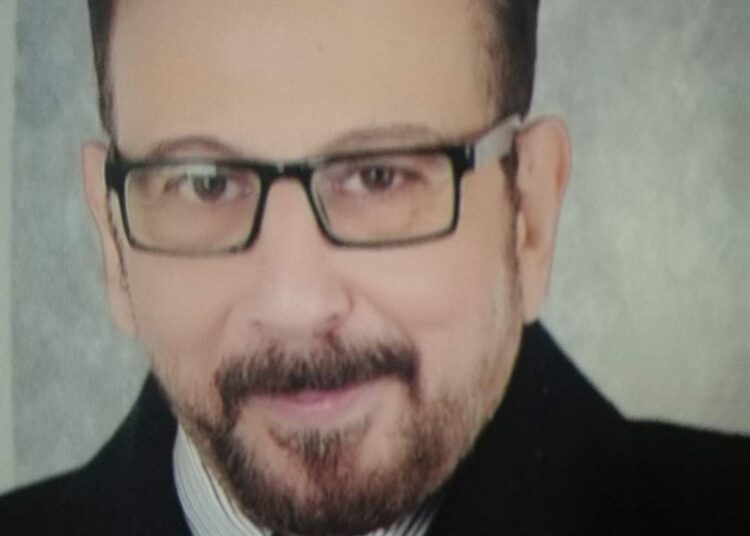The Africa we want
Abdelmonem Fawzi
Africa makes numerous successes. However, the positive stories of the continent’s progress are rarely told.
Africa boasts the largest number of female entrepreneurs in the world. Nonetheless, these entrepreneurs face many challenges when it comes to contributing to the development of their continent.
One of the continent’s fabulous women is Nardos Bekele-Thomas, the first woman to lead the African Union Development Agency (AUDA).
Bekele-Thomas was appointment and endorsed as the new Chief Executive Officer of AUDA-NEPAD by the African Union Heads of State and Government during the 35th Ordinary Session of the African Union summit in February 2022.
She believes that, despite the challenges it faces at present, Africa is capable of overcoming these challenges.
According to Bekele-Thomas, Agenda 2063 needs to become more focused on the people of Africa, one that is owned by all.
Ms Bekele-Thomas was previously the Senior Director of the Office of the United Nations Secretary- General.
She also served as Resident Coordinator for the United Nations in South Africa and as Resident Coordinator and UNDP Resident Representative in Kenya and Benin.
Prior to that, she served for over four years in Kenya as Deputy Resident Representative.
She is the author of several papers and monographs, being fully bilingual in French and English.
She has excelled as a Private Sector Policy Adviser, focusing on the promotion of trade and investment in several African countries through private/public sector partnerships in the United States.
Ms Bekele-Thomas has also served in a technical and advisory capacity, in which she helped initiate and conceptualise a pro-poor programmeme on the Social Dimensions of Development, and has served in various other capacities in the international development space.
She explained that the current priority action plan includes 69 transformative projects in transport, energy, water and ICT.
The plan, she said, also includes mega-initiatives, such as the Grand Inga hydropower project, which will, upon completion, be the world’s largest power generation project, and the vision of a navigable Nile River linking Lake Victoria to the Mediterranean.
“These ambitious efforts remind us of Africa’s legacy of innovation, a legacy that dates back to the building of the pyramids,” Bekele-Thomas said.
“Today, the same spirit of innovation is driving our infrastructure agenda forward, step by step, towards realising the ambitious vision we have set for Africa,” she added.
However, Africa currently receives only about $11 billion annually for this purpose.
If this trend persists, by 2030, cumulative adaptation financing will total just $125 billion, less than a quarter of what the continent requires.
This funding gap calls for urgent and collective action. We must intensify our commitment, scale up our investments, and drive our initiatives to new heights.
It is not enough to do what is comfortable or familiar. We must push beyond our current limits to ensure a future where Africa not only adapts but also thrives.
The good news is that AUDA-NEPAD will establish the Centre of Excellence on Climate Adaptation and Resilience.
Located in Egyptian capital, Cairo, this centre is dedicated to enhancing capacity building, knowledge sharing, and innovation in climate adaptation across Africa.
It will play a critical role in equipping African nations with the tools and expertise needed to integrate climate adaptation into their national development strategies.
Through this centre and other flagship initiatives, such as climate-smart agriculture and resilient infrastructure development, AUDA-NEPAD is committed to partnering with member states and international stakeholders.
Bekele-Thomas said the challenge of climate adaptation is simply too vast for any one country or region to tackle alone.
“Through partnerships with governments, international institutions, the private sector, and civil society, Africa is positioned not to be just a recipient of adaptation solutions, but a leader in shaping them,” she said.
Moreover, because she has vision and a mission, Bekele-Thomas formed a team of highly educated and creative people.
Most of the members of the team are girls. One of these girls is Zipporah Maubane. She was appointed as Head of Communications and Advocacy. With over 29 years of experience in marketing and communications, Maubane brings a wealth of expertise from global and African firms, positioning her to significantly contribute to the agency’s mission of advancing Africa’s development agenda.
Maubane is a highly accomplished executive who has held senior positions at major organisations.
She believes technology can help solve some of the world’s challenges and drive the change that we want to see.
“We can do things better and faster and connect the world through technology,” she said.
“I am also curious and willing to learn, which suits the nature of what technology is about: driving change. I like change although it’s tough, but it brings about growth and grows an individual’s mind-set,” she added.
Maubane also spent a year as a marketing consultant, assisting both CMOs and marketing agencies in accelerating the implementation of projects that require intense collaboration and engagement inside organisations.
She has worked on projects for Gilbarco, MTN and Net1.
She always says and repeats Michelangelo’s motto “Ancora Imparo” (I am still learning).
It remains to be said that Africa must harness women’s knowledge, skills, and talents at all levels of the problem-solving process, as a means of reclaiming the continent’s future.
The multiple and fundamental roles African women play in public and private spheres are key to leading Africa to a brighter future.






Discussion about this post